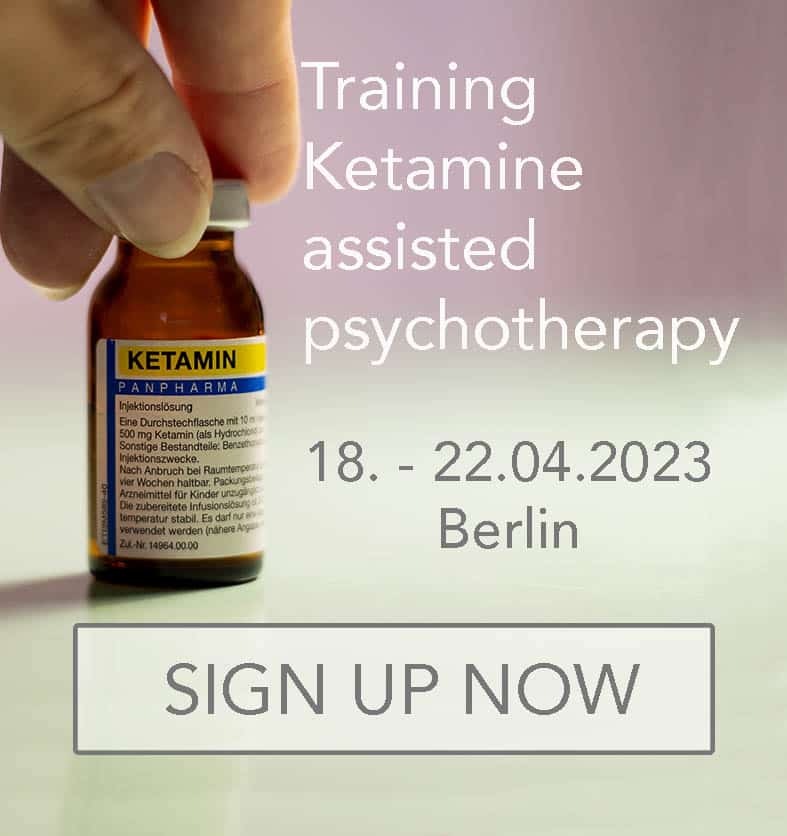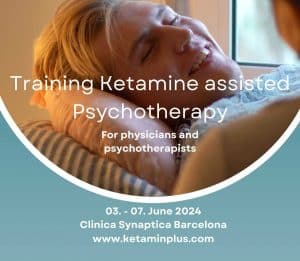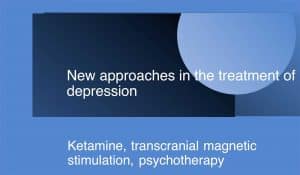- Working with altered states of consciousness
- Indication, contraindication, risks and side effects
- Importance of set and setting
- Ethical guidelines
- Attitude of the therapist, transference, counter-transference
- Attachment theory and relationship between psychotherapist and patient
- (Complex) PTSD and cognitive and physical processes of processing
- Mental hygiene
- Hypnosis
- IFS (systemic therapy with inner personality parts) Body-oriented techniques, polyvagal theory, touch
Ketamine infusion therapy
Ketamine infusions are an important part of our ketamine-assisted psychotherapy without antidepressants. Ketamine leads to a significant improvement in the symptoms of most depressive patients after only a short time.
How does ketamine therapy work?
- Suicidal thoughts largely disappear after the first infusion.
- Ketamine has practically no lasting side effects.
- The substance is completely broken down after a few hours.
- However, the effect remains.
- Due to the rapid improvement in neuroplasticity (new connections are formed between the nerve cells in the brain), patients also become capable of learning again, which improves the results of psychotherapy. For severely depressed patients, this is what makes psychotherapy possible in the first place.
Two effects of ketamine are used: on the one hand, the mind-altering (dissociative) effect during the infusion and, on the other hand, the lasting antidepressant, anxiety-relieving effect.
During the ketamine infusion, patients often experience a change in perception. Memories, emotions, inner conflicts, but also hidden fears can appear. If these are now conscious, they can ideally be processed within the framework of psychotherapy. The antidepressant effect usually only appears on the following day of the infusion and impresses with an improvement and stabilisation of mood.
Ketamine works for different lengths of time, often only days to weeks. Therefore, several infusions (3 to 6) are
(3 to 6) are usually offered at intervals of a few days.
In the USA, it has become common practice for patients to receive a booster infusion every four weeks. Due to our intensive, ketamine-assisted psychotherapy, this is often not necessary with this frequency in our treatment of depression.
































